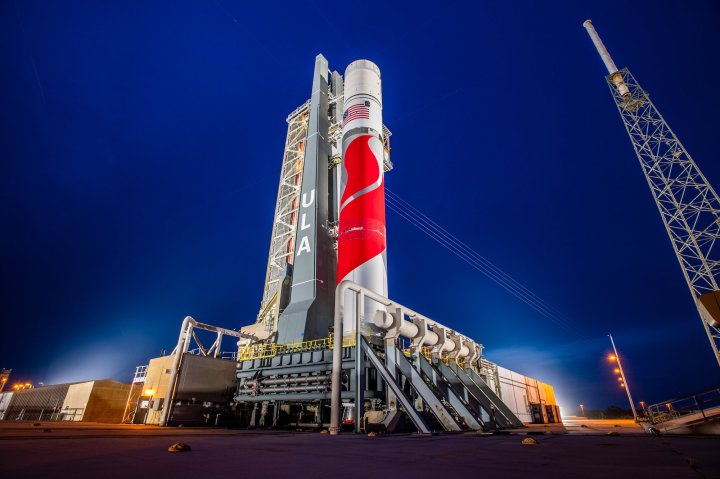
SpaceX tends to get all the headlines when it comes to rockets, but United Launch Alliance (ULA) has been in the game almost just as long (it was formed in 2006, four years after SpaceX), sending satellites to orbit for a range of customers across national security, civil, and commercial markets.
This week it offered an update on the Vulcan Centaur, the successor to its Atlas V and Delta IV rockets. The Vulcan’s maiden flight — called Cert-1 (short for Certification-1) — is currently scheduled for December 24 from Cape Canaveral in Florida, launching Astrobotic Technology’s Peregrine lander to the lunar surface.
ULA said on Monday that the Vulcan rocket is beginning final processing activities ahead of the inaugural launch on Christmas Eve. These include a wet dress rehearsal where the rocket’s launch systems and procedures are put through their paces, spacecraft integration, and then final processing in preparation for launch.
“This launch begins a new era for ULA and for the country,” Tory Bruno, ULA’s president and CEO, said in a message released on Monday. “Vulcan satisfies all challenging orbital requirements essential for U.S. national defense and provides one scalable system for all missions while continuing to provide unmatched reliability and orbital precision.”
The Vulcan’s core stage is powered by two BE-4 engines built by Jeff Bezos’ Blue Origin, a company also known for its short tourism rides to the edge of space and which is developing a lander for future crew and cargo missions to the moon.
Assuming the Cert-1 mission goes according to plan, ULA plans to send the Vulcan to orbit again in the Cert-2 mission in early 2024.
Spaceflight companies are developing new rockets all the time. France-based Arianespace, for example, is readying Ariane 6 for its maiden flight next year, while New Zealand firm Rocket Lab is working on the Neutron rocket that could one day carry human crew. And then there’s SpaceX, which is hoping to send its mighty Super Heavy rocket and Starship rocket — collectively known as the Starship — on its second test flight in the coming months following a failed flight in April.
Editors’ Recommendations
Services Marketplace – Listings, Bookings & Reviews
